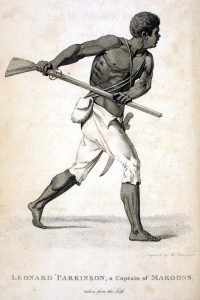
As part of the National Council for History Education (NCHE) Summer Professional Learning Series, Luis Martínez-Fernández, professor of history, will host a webinar on “Slavery and Resistance in the Atlantic World” on July 28.
Martínez-Fernández’s webinar will explore African slavery as an Atlantic-wide phenomenon that began in Hispaniola in 1502 and was finally abolished in Brazil in 1888. It spread widely virtually to every present-day nation in the region from Seville and the Cape Verde Islands to Quebec and Córdoba, Argentina. This free session will discuss aspects of slavery and resistance that were common throughout the region as well as numerous factors that made most specific experiences unique, among them geographic setting, demographic makeup, legal tradition, and even predominant type of agricultural activity.
With over three decades of experience teaching about slavery in the Americas—sixteen of those years at UCF—and numerous books and articles on the subject, Martínez-Fernández will draw illustrative examples from his courses and scholarly publications.
History educators as well as the general public will find this webinar particularly useful as Martínez-Fernández will share a variety of largely unknown primary sources including prints and photographs, plantation inventories and court testimonies.
Also as part of the NCHE’s summer online events, Martínez-Fernández was invited to join a panel of distinguished historians of slavery, resistance, and race to discuss the history of resistance on August 5.
To learn more about the NCHE’s summer educational offerings and to register for these unique learning opportunities, visit nche.net.
Image caption: Leonard Parkinson, Maroon Leader, Jamaica, 1796; courtesy of Slavery Images: A Visual Record of the African Slave Trade and Slave Life in the Early African Diaspora